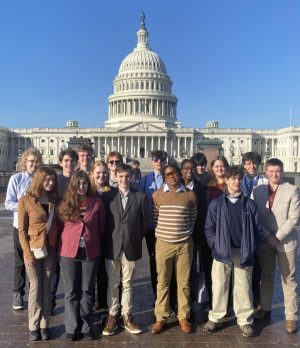KICs more hectic than the start of spring semester
January 27, 2023
We have finally made it into the swing of things since beginning spring semester a few weeks ago. Classes are a few unit tests in and the schedule has settled into a rhythm. But with all the breaks it has, spring semester absolutely flies by, and before you can say “this is too hard,” it is going to be over. This week we have news about Machu Picchu, rising gas prices (real surprise there), a double homicide in Senoia, Memphis policemen charged with murder, and the trend of “Don’t Say Gay” laws.
January 23 – Machu Picchu closed in protest of the Peruvian government
Protesters from Andean regions in Peru came to Lima to demand President Dina Boluarte’s resignation after Machu Picchu by Cusco was closed on Saturday for the safety of the tourists and population.
Protesters housed themselves for demonstrations at the most important public university in Lima, and police came to detain the protesters. The former President Pedro Castillo’s first leader was impeached and imprisoned due to trying to dissolve the Congress. Boluarte was sworn in as president, prompting protests.
Protesters met outside the law enforcement office on Saturday and demanded freedom for Peruvians and tourists. Cusco has lost tourism because of protesters storming the airport, but the tourists who were affected will get their money back.
January 24 – Georgia gas prices rising
In Georgia, the average gas price has risen from what it was a week ago. Regular unleaded gasoline drivers in Georgia are now paying a median price of $3.25 per gallon.
AAA, the Auto Club Group, spokeswoman said the current deferral of state gas tax is one of the many reasons why gas prices are rising all over Georgia. The overall domestic gas stocks increased by 3.5 million barrels to 230.3 million. The rising gas demand had further advanced with the higher pump prices.
If this high gas demand remains, Georgia drivers can expect to see pump prices increase throughout the week. Average gas prices overall in Georgia are high right now, with Atlanta’s average being $3.23.
January 25 – Investigation of double homicide in Senoia still underway
Coweta County investigators have found a second casualty in the shooting in Senoia that took place on January 17. Kip Harris and Marvin Bridges Jr. are the two casualties from the double homicide on Deep South Road in Senoia.
Harris and Bridges were both shot in their homes while someone was trying to break in a little after midnight. There was a third person in the house as well, but he was not harmed in the scene. Harris was transferred to Grady Hospital and died a few days later, while Bridges was shot in the head and died at the scene in his house.
The investigation is still in process to find the identity of the intruder. Due to this being a very serious situation, this investigation has been opened to the public. Coweta County Officers are rewarding $2,000 for those who provide helpful information about the killer.
January 26 – Five Memphis ex-police charged murder
Five former Memphis police officers have been indicted in the brutal beating death of Tyre Nichols, who died days after the traffic stop on January 7.
Tadarrius Bean, Demetrius Haley, Emmitt Martin III, Desmond Mills Jr., and Justin Smith each face severe charges. The Memphis police chief Cerelyn Davis released a video statement about the horrific incident, calling it a professional failing and a reckless and inhuman incident. According to County District Attorney Steve Mulroy, while each officer’s role was different, their actions were what caused his death, which makes them all responsible.
All five men surrendered to the Tennessee Bureau of Investigation agents Thursday morning, and are currently being held in the Shelby County jail. Haley and Martin’s bonds are being held at $350,000, while $250,000 has been set for Bean, Mills, and Smith.
January 27 – “Don’t Say Gay” laws trending in southern states
Florida has passed a bill which restricts mentioning gender identity in a classroom curriculum, and other states have followed suit. These laws are known as “Don’t Say Gay” laws.
Florida Governor Ron DeSantis signed and defended these laws, and gave them the title of Parental Rights in Education, which is supposed to give parents more control of kids’ education. Texas Lieutenant Governor Dan Patrick said that passing a similar law is one of his priorities. Now, Texas might have more restrictions of LGBTQ curriculum in public schools than Florida.
Other states such as Ohio, Alabama, and Louisiana have also attempted to pass similar bills, trying to restrict talk of LGBTQ in public schools. So far, most of these states have successfully passed these bills, except for Louisiana, whose attempt was rejected and shelved for this year’s legislative session.








